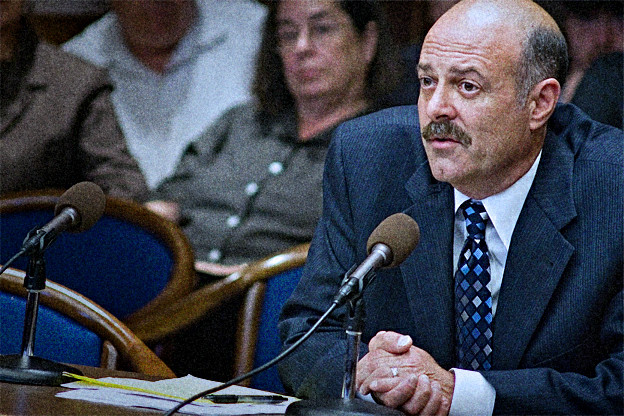

You seem hoarse, Frank
In recent days, mining flack Frank Ongaro, the executive director of Mining Minnesota, had an overheated commentary in the Strib, complaining bitterly that, well, let’s let Frank tell it:
In “Fighting to save the soul of Minnesota” (March 14) former Vice President Walter Mondale endorsed an extremist proposal, calling on the U.S. Department of the Interior to unilaterally withdraw from future leasing and development of all federally owned minerals located in the vast Rainy River Basin of northern Minnesota.
Ongaro doesn’t explain how the federal government’s failure to give away property it owns is “grabbing it,” but never mind. Frank ought to remind you of Cliven Bundy and his boys.
I’ve been winding up to write about Frank’s remarkable piece, especially about how mining advocates are so good at claiming that mining is safe and ethical, all the while trying to undermine the regulatory regime that’s already been captured by the industry.
But now I don’t have to! Lucky me. There are a couple of really good letters in the Strib this morning responding to Ongaro. First:
Frank Ongaro and the Minnesota mining industry would have more credibility asking us to trust in environmental agencies to protect our natural resources from the risks of mining under “rigorous and well-established laws” (“Mineral lease limits would cost region,” April 4) if they would quit trying to weaken them every chance they get.
In the past week, the mining industry has through its Minnesota legislative supporters introduced:
• HF 3750, a bill that sharply limits appeals of mine permits and leaves it to the commissioner of the Department of Natural Resources, the permitting authority, to determine their validity.
• An amendment to HF 3501 to include a portion of these limits, making it harder to appeal mine permits by removing the opportunity for less-costly administrative appeal.
• SF 3376/HF 3726, a bill that requires the Minnesota Pollution Control Agency to vacate an existing mining company sulfide permit limit and declares invalid the 40-year-old water pollution standard.
The mining industry has zero credibility when it crows about how tough environmental agencies and laws are in Minnesota. It controls both.
Don Arnosti, St. Paul
The writer is conservation policy director for the Izaak Walton League.
And this one, too:
The Boundary Waters Canoe Area Wilderness (BWCA) is a priceless asset of Minnesota and the U.S., yet the copper mining industry is willing to permanently degrade it. As Mining Minnesota’s April 4 counterpoint proves, the industry will say anything to try to get its way.
Former Vice President Walter Mondale in “Fighting to save the soul of Minnesota” (March 14) encouraged federal agencies to protect the BWCA by prohibiting private exploitation of mineral rights on national forest land that is, of course, owned by the American people. By the twisted logic of the mining industry, as stated in its counterpoint on Monday, this action of our government to protect public assets would be a “draconian federal land grab” of land the government already owns.
Facts are irrelevant to the industry, by all appearances. The commentary claims that a University of Minnesota Duluth study finds that the impact of “copper-nickel mining projects includes the creation of more than 5,000 jobs related to mining operations … .” The UMD study says no such thing; the 2012 study, “The Economic Impact of Ferrous and Non-Ferrous Mining,” attributed less than 10 percent of the projected Minnesota jobs to copper mining. The study projected 5,029 new jobs in taconite and 427 jobs in copper. Recent events show that the taconite projection was wishful thinking, at best. The world is awash in copper. There is only one BWCA.
Reid Carron, Ely, Minn.
Thanks for your feedback. If we like what you have to say, it may appear in a future post of reader reactions.

